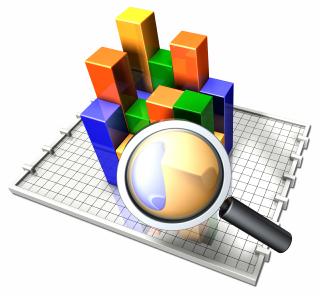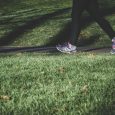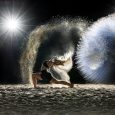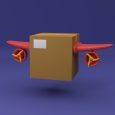If you optimize a JPEG image, it can go from from 1.4MB to 10KB. By optimizing the images you can also reduce loading time of images substantially. Below I mentioned 15+ Tips To Optimize Images For Search Engines.
 1. WordPress Plugin : You can try SEO Friendly Images, a WordPress plugin, for optimizing images on your WordPress Blog. It will automatically optimize image ALT and TITLE tags.
1. WordPress Plugin : You can try SEO Friendly Images, a WordPress plugin, for optimizing images on your WordPress Blog. It will automatically optimize image ALT and TITLE tags.
2. Title and Alt : Alt attribute is very essential for optimizing Images for search engines. You have to describe the image in short.
3. Resize : Always resize the images using a software (like Photoshop) or any other online tools. Don’t use HTML or CSS properties to do it. You can also try some free online photo editing tools.
4. Robots.txt File : Your robots.txt should permit search engines to read the images folder. The images folder should not be blocked by your robots.txt file.
5. File Name : Always use relevant file name. If you have a ball picture, the file name should be “ball”. If it is a red color ball, then the file name should be “Red Ball”. Use hyphens (-) instead of underscores ( _ ). Simple enough right?
6. Use Captions : Place a small caption near to the image. Let it be at the top or bottom, right or left. Caption should be relevant to the image.
7. Be Relevant : The image should match the content and vice versa. Images can compel the visitors and readers to stay longer.
8. Enable Image Search : Make sure you have enabled Image Search on Google Webmaster Tools. If you have not, do it now!
9. Save For Web : Always use Adobe Photoshop to optimize your images. For better optimization try Save for the Web feature. Go to File | Save For The Web. By this you can optimize images to desired size and quality. You can also try Adobe Fireworks.
10. No Bitmaps : Avoid Bitmaps since it is not very good in Search Engine Image Optimization. Try other common and famous formats instead. See 13th Tip.
11. Optimization Tools : You can use this online image optimizer from Dynamic Drive. You can check this list of useful tools for optimizing images.
12. Crop : Leave the essential parts of the images and crop the rest. It will also help you take up less space on your page. Usually, people will crop the white space around the images.
13. Right Format : These are the commonly used Image Formats.
JPEG – For Photos
GIF – For Animations
PNG – For Logos, Icons, Buttons and so on.
14. High Quality Images : It is believed that people pay more attention to clear images where they can see details. So always use High Quality Images. Avoid Blur and Abstract images. You can check the list of sites providing high quality images here.
15. Images Per Page : Try to avoid many images on a single page. Limited number of images per page is good for optimizing images for search engines.
16. Optimized Hosting : Popular image hosting site, Flickr is believed to help Yahoo! image optimization. So chose Popular and reliable photo sharing hosting, if you are not using WordPress!
17. New Location : Generally, the default location of Images is not good in terms of Image Optimization. You can change the default location of images on WordPress, by creating a new sub domain and shifting the Images Folder.
18. Original Images : Experts believe that it is good in terms of Image Optimization to use original images. You can brand the images through Watermarks or logos.
19. Long descriptions : Longdesc attribute is also similar to alt attribute. It was initially used for visually paired people. You can link HTML document describing the image, suppose if it is a natural scenery you can tell the location, climate and weather, etc.
<img src="https:/pradeep.png" alt="Pradeep Kumar" longdesc="https:/aboutpradeep.html" />
20. EXIF data : Using EXIF data you can add various types of meta data to the original image file. This is over powerful than Alt, Title or LongDesc attributes, you can keep information like aperture speed, date and time, type of camera used, etc.
21. GEO locations : If you are targeting locally for a particular image then you can keep the location name in the image file name. Say if you want to target the image “Saravanaa Bhavan” in Chennai, you can keep it as “chennaiSaravanaaBhavan.png”. You can also keep alt tag like “Saravanaa Bhavan in Chennai”.
22. Anchor Text: Not silly, but this is an useful tip. If you make the anchor text richer then the results will be good. Suppose if you have an image of “Pradeep Kumar” (https:/pradeep.png) (myself :P), your anchor text could be obviously something like “Pradeep Kumar” or “S.Pradeep Kumar”.
23. Wrap Content Around Images: When you keep an image somewhere, try to wrap it within some related texts. You can keep the target keyword (but, please don’t spam) next to the image, like say heading or description. This will help search engines to rank your images easily.
If you know any other good tip for optimizing Images for search engines, please share it in the comments!










Hi Pradeep,
Thanks buddy for all the help, I found a good friend in blogging community, that’s you 🙂
Alt Image tag is the most important part of optimizing images. Robots.txt File is also another important part. I think if we manage to these 2 most important parts then we make the most out of our images.
nice tips,,all my images got deindexed because i blocked it in my robots file,,creating image sitemap and submitting to google is also useful
hi, Very nice tips but how to set the exif data of a image in wordpress?
Thanks for the great information, I am in the process of changing everything to roll over images.
Great info! I think you need at least 2 images in every post if you want to score high, isn't it?
I will translate this usefull article to my language ( Turkish ). Thanks a lot.I like the SEO tip for using the ALT attribute for images. I think it is by default present in the WordPress Core package..
Very useful, thanks for sharing !
Traffic from images is really surprising for me.I saw the real time traffic on my blog when i started using images.
Than u very much…keep updating us.
Thanks Pradeep, Images can also drive traffic to your blog via google image search
Wow, those are too much. I’ll just use the SEO Friendly Images instead. That would be much easier.
Such wonderful information regarding image optimization. I really liked it.
Thanks a lot, Keep posting dude…..
The ALT tag is probably the most important thing to include.
I'd tried optimizing keywords. However, I'd never tried optimizing images. These tips will really help me how to optimize different images.
read this http://vbloginfinity.wordpress.com/2010/05/25/image-optimizer/
Im aware of 14 in the list. Everything mentioned! Great article. Thnx for sharing 🙂
Images can without a doubt bring a lot of visitors to your sight. If you make sure to title your image files and give good alt tags, your images will get indexed and bring in lots of visitors!
thanks for this tips, although using images is a great addition to a website, its still bad if most of your site is made up of sliced images or even the navigation and title.
.-= Mayweather-Mosley’s last blog…Pacquiao vs Clottey Overshadowed by Mayweather vs Mosley? =-.
I use to redirect peoples coming from the google image search directly to the page where the image is by removing the google image frame. Does this effect SEO ?
.-= GDI Blog’s last blog…List of blogs that accept Guest Posts =-.
Very informative article.. I would like to add that Irfanview is a free program for image manipulations..
.-= Katrina’s last blog…Katrina Kaif Bikini Picture =-.
When you say The images folder should not be blocked by your robots.txt file, which folder are you referring to? Cos I disallowed indexing of all my wordpress folders (admin, content and includes)
.-= Udegbunam Chukwudi’s last blog…Beware Of MMO Blog Setup Services Like This One! =-.
That’s a complete set of information. Liked what you said about resizing of image.
keep it up.
.-= Kothapally Arun’s last blog…This is my Broken Bone Tattoo from Casttoos!!! =-.
Some interesting tips,
I tend to work hard on having relevant and eyecatching images but apart from alt tags i never think of images in seo.
Paul.
I also tend to forget the alt tags when using editors or wordpress. I usually catch them during the testing and editing phase. If I didn’t catch it then. When I validate, it catches all the missing alt tags.
.-= Gabby’s last blog…Will Floyd Mayweather vs Shane Mosley Silence the Critics? =-.
Writing apt alt and title are really vital, they can help in driving huge traffic through image search .
I receive a few hits everyday from Google images but I believe the traffic is low quaity. I know every visit is a visit after all but still….should I focus on increasing traffic from google images or not?
SOme nice and useful tip. Also add those images into Flickr and at the bottom give credit to your blog. This will help you to drive extra traffic 🙂
Sweet list, that is one of my weaknesses is optimizing my images. Partly cause I don’t really spend much time with them and because I didn’t really know much about optimizing them.
I think you gave me plenty to work with now because I’ve been noticing lately my images have been getting less and less searches for them when I look at my stats.
Thanks, MD
Right Tips, use keywords as Alt, for me Images are so important, i am getting a decent traffic from images.google
I used “enable image search” in webmaster tools few months ago, but now its gone ..
when i started blogging i haven’t use any image in my posts but when i started using images got some traffic from google images, after it i realized that how important it is to use images in posts. the tips mentioned by you is good and most of them i am already using
Traffic from Images will always surprise you 🙂
Two things…
1. It’s always been my understanding that .gif is better then .jpeg all around when dealing with the web.
2. Images per page – home page too or just single post page?
Cool Tips Brother..
But I always forget to Include “title” option…. i will fill “alt” anyways
I like the SEO tip for using the ALT attribute for images. I think it is by default present in the WordPress Core package..
Great post. I try and follow all of these SEO practices. I tend to forget the alt tags when using editors or wordpress. I usually catch them during the testing and editing phase. If I didn’t catch it then. When I validate, it catches all the missing alt tags.
Your tips very accurate & easily understandable by Newbie also really good post .
i used seo friendly image with success i have visitors from google images.
a very nice and awesome list of simply works to do.. but I think we should take more help from the plugins to make our blogging and posts at speed or in others words quality ones..
if we take so much effort mentioned in this post when we will be writing our posts ??
good dude… keep on posting ….:)
No points is left..
u mentioned all…
Thanks for sharing man
Thank you for this information. Well I did not take attention on image optimization for my blog.
Try to optimise images.. i too thought its a waste thing to optimise images…
But now im getting a some traffic from image search
I am beginner to learning Programming, we are going to optimize it with your tips.
Good tips. But would you really resize them in Photoshop if you want them to appear small on the page but enlarge them when the user clicks them?
If you leave them large, but resize them on the page only, they appear as large images in google search results.
Hey thanks for those great tips! Will surely implement them in my blog! Especially we never pay much attention to our images, but from now I will!
i am not using images in my posts which is going against me….